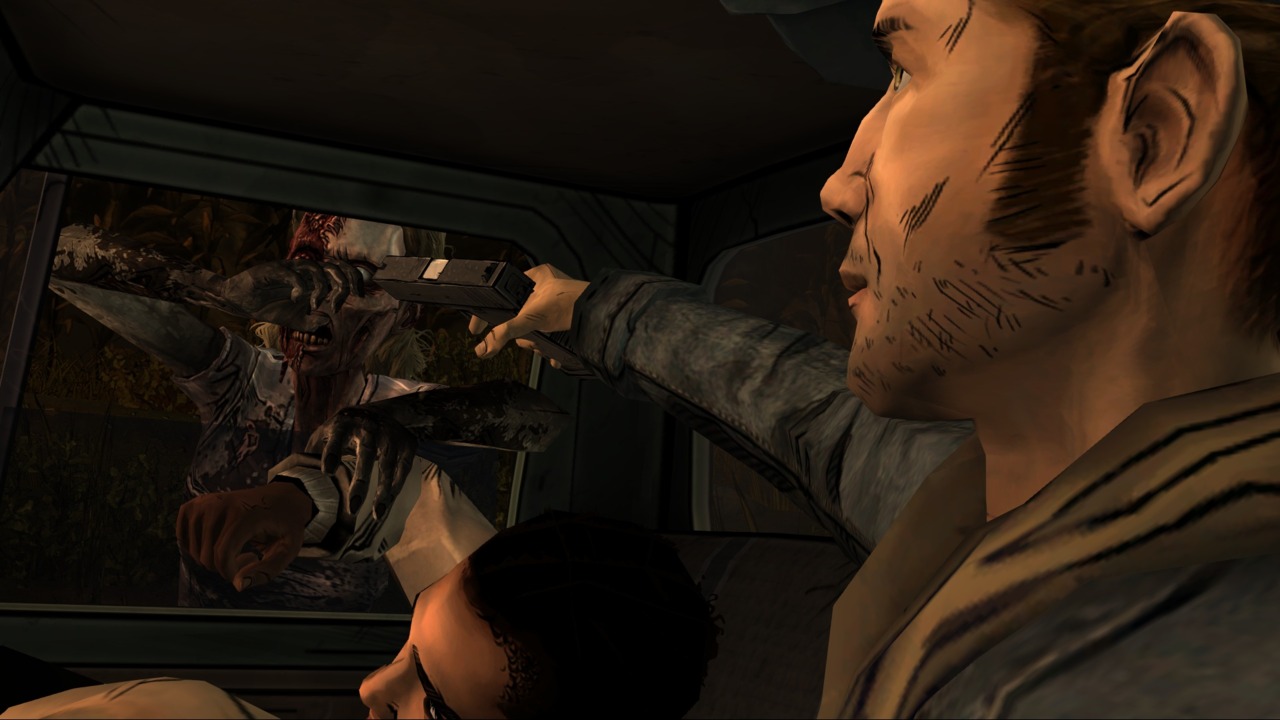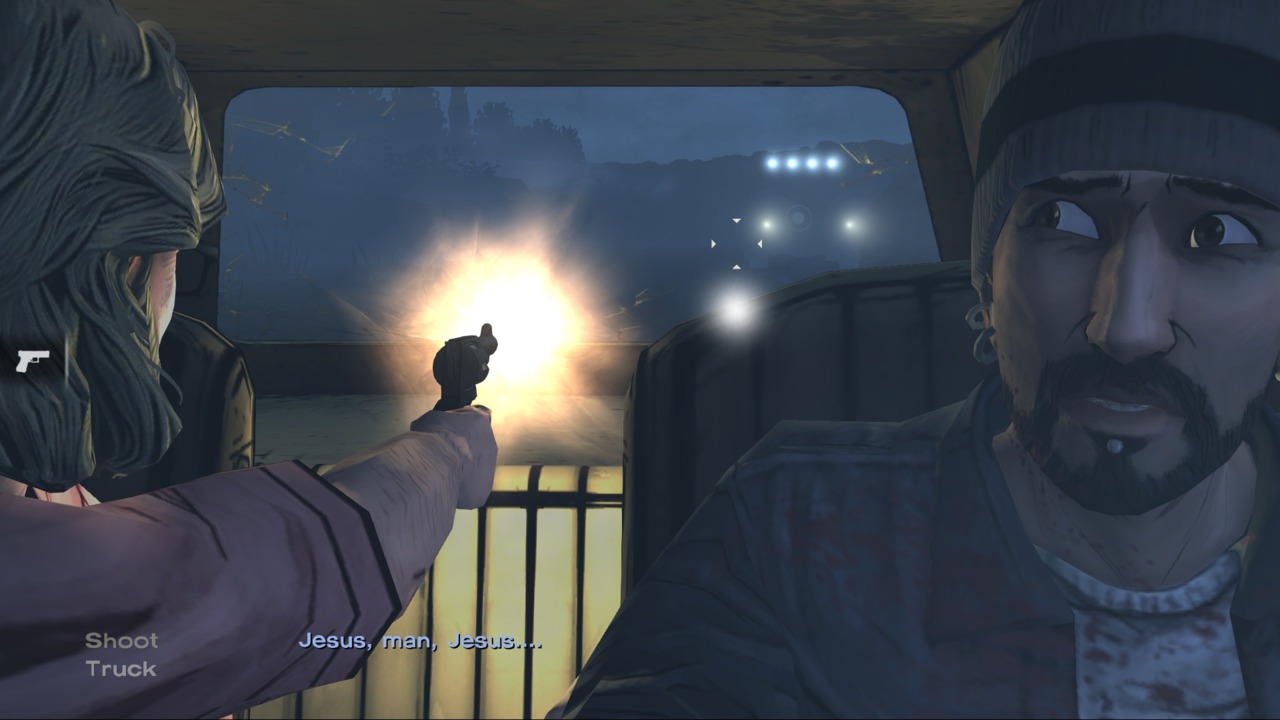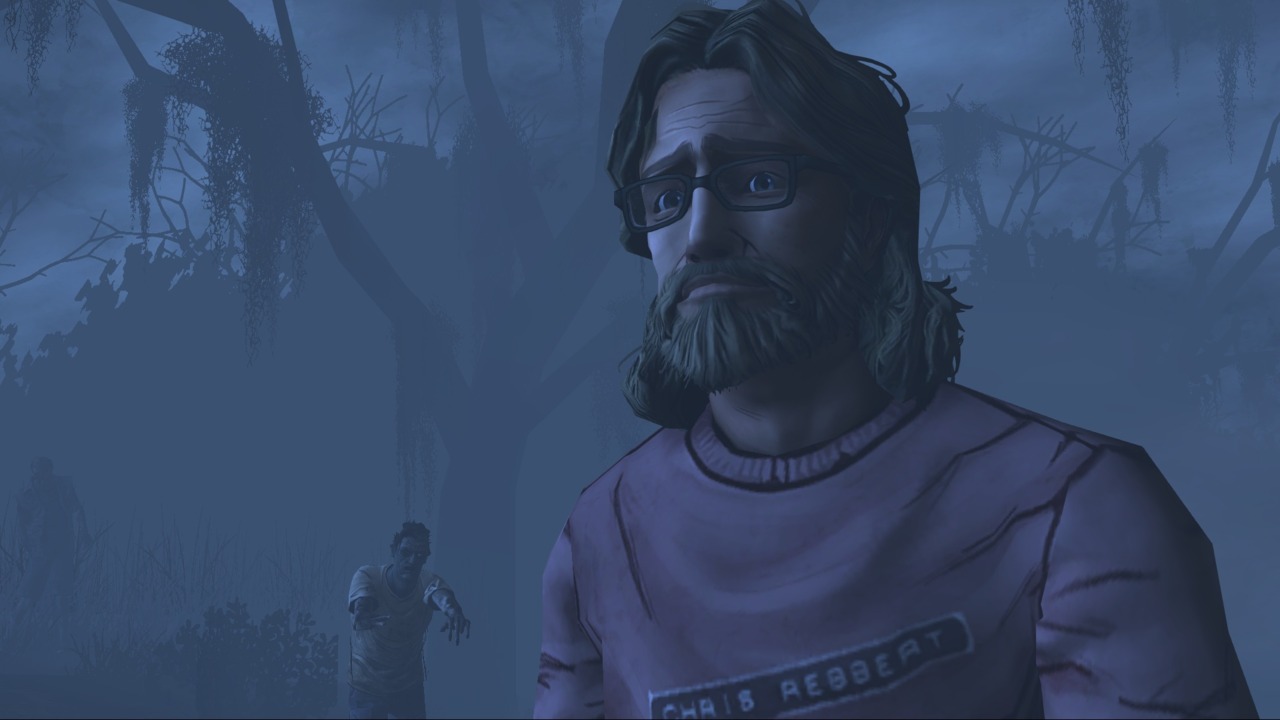It's probably natural to assume you'd be disappointed with The Walking Dead: 400 Days. After all, this is a tide-you-over adventure intended mainly to fill in the long summer months between seasons one and two of Telltale Games' spellbinding take on Robert Kirkman's award-winning comics about the zombie apocalypse. Fortunately, that's an assumption 400 Days quickly proves wrong. While this game may be brief, zipping along so fast that you can't get to know any of the characters as well as you'd like, the writing and voice acting are both absolutely brilliant, and the soul-wrenching moral choices come so fast and furious that you feel emotionally exhausted by the time you're done.

The structure is different from that of the first season of Telltale's Walking Dead episodes, more akin to a collection of linked short stories than the novel-length saga of Lee and Clementine. The story pivots around a highway truck stop and restaurant somewhere down in Georgia. Vignettes recount the travails of five different characters over the first 400 days since the dead got up for a snack. These mini-episodes can be played in any order you choose, so you bounce back and forth chronologically between moments like witnessing the beginning of the end in a prison bus and being terrorized in a truck by a man driven crazy by 184 days of zombie fun.
All of these stories stand on their own as particularly horrific snapshots of what it is to have survived the end of the world. Every episode centers on one or more impossible choices that are even more unforgiving than those in the first season episodes. The whole game is loaded with heart-wrenching choices, and the short-story structure and brief running time--90 minutes at most--also means that the game works you over like a speed bag, rabbiting you with one gut-check after another. By the time that the game ends, you're worn out.
All of the individual stories come together in the end, too, recounting how a group of survivors got together. The characters here are given real depth, so you come to care about the entire cast even though you're spending no more than 20 minutes with the leading actors in each story. Dialogue is never forced, to the point where you often feel like you're eavesdropping on the lives of real people.

The lover's triangle story with Bonnie, Leland, and Dee is fantastic, and it's all built up through simple and direct dialogue. The chemistry between Bonnie and Leland is crafted through teasing conversation and a game of "Would You Rather?" that seems so natural that if it were in a movie, you would assume that the actors were ad-libbing lines and had been getting up close and personal off-set. The same goes for Wyatt and his buddy Eddie. A conversation in a little hatchback veers all over the map, from the crazy murder that just went down, to past girlfriends, to weed and flatulence; you can tell that these guys have a history together. Truck-driving Nate offers up a multifaceted and disturbing depiction of insanity. He's scarily unpredictable, one moment pleasantly friendly, the next a sadistic lunatic ready to execute an elderly pair for their belongings.
Even the good guys aren't entirely good in this zombie-infested world where morality is barely existent, and the writing brings this out in strong fashion. Two victims of a crazed killer, for instance, can't be seen as totally sympathetic, as they reveal themselves as abhorrent racists right before meeting their end. In earlier Walking Dead episodes, you were faced with questions like whether or not to loot a running station wagon of food. Here, the dilemmas are darker, and some of the bleakest and most pragmatic choices make sense in this grim reality. Killing a friend for a betrayal, and cutting off someone's leg and leaving him for zombie fodder, seem like prudent choices.
About the only drawback here is time, as you simply don't have enough of it to bond with any of these characters as strongly you did with Lee, Clem, Kenny, and the gang in season one of The Walking Dead. The writers have made as much of their limited minutes as possible, however. Instead of loading up the dialogue with dull exposition, a lot is left unsaid and unexplained. This makes for realistic characterizations and conversations; the "less is more" philosophy is pulled off brilliantly.

Gameplay takes a backseat to the stories. There isn't much action at all: Most of the time you just pick dialogue choices or make life-and-death calls that move the plot in one direction or another. Yet it's all gripping, in large part due to different settings. One moment you're alone on a foggy road looking for a guy you just ran over. Then you're in a truck late at night with a nut who might shoot you at any moment. Then you're in a pitch-dark cornfield fleeing from unknown goons with flashlights and guns. Still, there is virtually none of the quick-trigger zombie shooting or stomping that characterized Telltale's earlier Walking Dead episodes. The only way you could get killed here is if you accidentally drop your gamepad at an inopportune moment. This fits in with the story, really, which is much more about the threat posed by fellow human survivors than the threat posed by the zombies. But it's a change from what has gone on before.
Clementine may be nowhere to be found here, but 400 Days is nonetheless a strong entry in the Walking Dead series. It's short, but it packs a lot into every single minute of gameplay. While the game might seem like a cursory attempt to keep fans tided over until season two debuts later in 2013, it is actually one of the most imaginative, gripping, brutal, and best-written stories that you will experience all year.